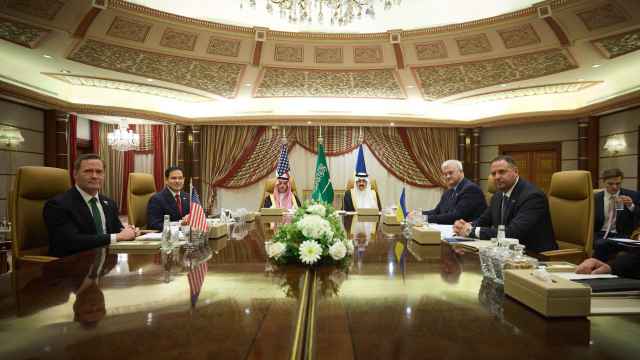International online payment giant PayPal has overcome the legal barriers to full entry and is ready to launch into the increasingly lucrative Russian online payment market.
From Sept. 17, PayPal account holders will be able to top up their accounts and transfer funds to Russian banks in local currency, Vedomosti reported Friday.
The move gives PayPal full access to an e-commerce market that grew almost 20 percent in the last six months of 2012 — five times higher than the European average — and is set to hit $25 billion by 2016, according to data from the Global Web Index.
PayPal added rubles to its two dozen other currencies before, in 2011, but found itself hobbled by a Russian law, signed by then-President Dmitry Medvedev the same year, that required all e-commerce organizations
operating in Russia to have a non-credit banking institution license from the Central Bank.
Not having the license meant that PayPal was barred from setting up connections allowing transfers of money into Russian bank accounts.
Yet even with one arm tied behind its back by the 2011 law, the company has carved out a 9 percent market share. Still ahead are local competitors Yandex.Money, which has 17 percent of the market, Qiwi, with 14 percent, and WebMoney following with 13 percent, according to a TNS Global report.
The Central Bank granted PayPal a license in May, Gazeta.ru reported.
PayPal’s primary business is in processing online payments, but the company also hopes to be adopted by shops and cafes, allowing customers to pay through mobile applications linked to a PayPal account, something the company already does in the West.
It hopes that its brand name and a solid position overseas will help it conquer the market. Local payment systems, however, are not impressed. “In Russia, PayPal doesn’t offer anything new,” Yandex.Money spokeswoman Asya Mulkumova said. Russian payment systems already work with customers from different countries and provide similar services, she added.
PayPal may end up joining a long list of global IT leaders turning out to be laggards on the Russian stage. According to the Digital IQ Index research published by NYU Stern on Thursday, Google has 26 percent market share in Russia, far behind Russian-born search engine Yandex, which has 62 percent. The same goes for Facebook, which has only 13 million users in Russia, set against local sites Vkontakte and Odnoklassniki with 44 million and 26 million users, respectively.
To be successful in Russia, overseas e-commerce companies are better off spending their time adopting Russian technology and using local social networks, the Digital IQ Index concluded.
Other experts are more positive. PayPal’s arrival on the Russian market is a sign that the market has grown and become interesting to the global firms, said Vladimir Kitlyar, business development director at Dengi Online.
Yulia Mansurova, a spokeswoman from Qiwi, a rival Russian payment service, said PayPal’s presence on the market is good for e-commerce as a whole. It is a growing market with a number of high potential segments to be explored, she said.
And PayPal may have a competitive advantage in “the high level of service and buyer protection that PayPal offers [which] provides extra assurance and protection to customers against questionable merchants and fraudulent transactions,” said Maria Goryacheva, a spokeswoman from PayOnline, a user of online payment services.
Outside Russia, PayPal is known for its lucrative partnership with eBay, which has owned the payment system since 2002.
But considering the auction website’s weak presence here, this union may hinder the company’s success in Russia, Mulkumova said.
Without eBay, PayPal does not have a development platform, she said, making the company’s future dependent on what eBay plans to do in Russia.
It may be a hard road, because “eBay relies on a strong postal infrastructure, which Russia doesn’t have,” Mulkumova said. “If it improves, PayPal will have a chance. But eBay has been present in Russia for many years, and nothing has changed.”
Contact the author at g.moukine@imedia.ru
A Message from The Moscow Times:
Dear readers,
We are facing unprecedented challenges. Russia's Prosecutor General's Office has designated The Moscow Times as an "undesirable" organization, criminalizing our work and putting our staff at risk of prosecution. This follows our earlier unjust labeling as a "foreign agent."
These actions are direct attempts to silence independent journalism in Russia. The authorities claim our work "discredits the decisions of the Russian leadership." We see things differently: we strive to provide accurate, unbiased reporting on Russia.
We, the journalists of The Moscow Times, refuse to be silenced. But to continue our work, we need your help.
Your support, no matter how small, makes a world of difference. If you can, please support us monthly starting from just $2. It's quick to set up, and every contribution makes a significant impact.
By supporting The Moscow Times, you're defending open, independent journalism in the face of repression. Thank you for standing with us.
Remind me later.






